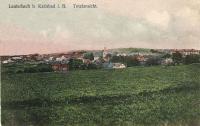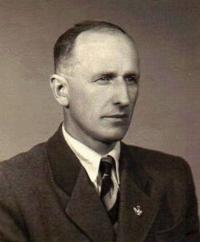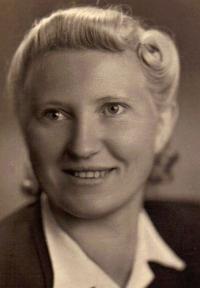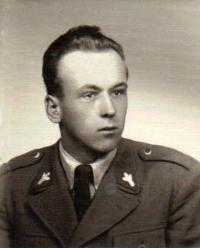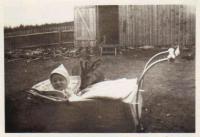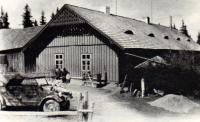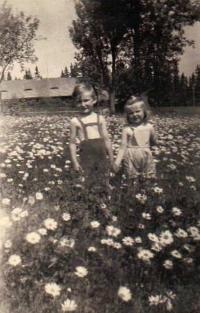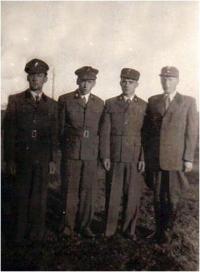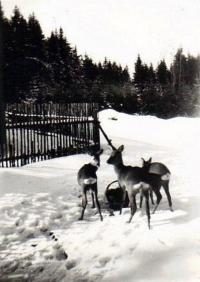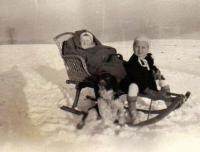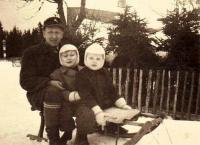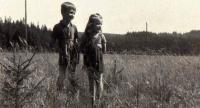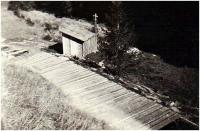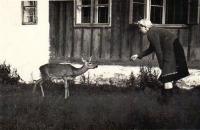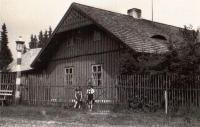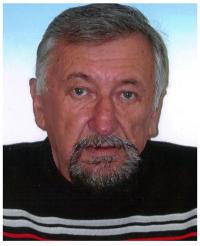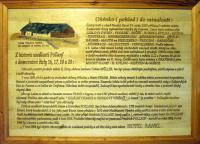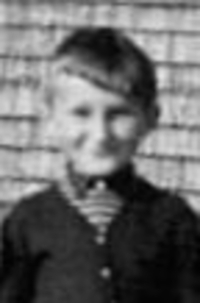Me and my sister had to sit on a sofa in the kitchen and a soldier with a machine gun was watching us

Download image
Eduard Steun was born on June 21, 1946, in Literbach in Slavkovský les (Slavkovský forest). He was the last citizen born in this small, predominantly German town, that was already being evacuated at that point and that was finally razed to the ground in 1948 in the course of a military exercise. His father worked in Literbach as a forester and before that he served as a police officer in Bdeněves in western Bohemia, in Chvaly near Prague and in Beroun. He was imprisoned twice by the Nazis during the war. Shortly after he started working as a forester in Literbach, he discovered - while being on a patrol - a grave of twelve Jewish women, who died on a death march. After the liquidation of Literbach and two short stays in nearby villages the Steun family moved in 1949 to Zlatá Studna in Šumava (the Bohemian Forest), where Eduard’s father got a job as a forester. Therefore they lived in the vicinity of the state border with Bavaria, which was very busy back then as smugglers used to shake hands with secret agents there and the unhappy Czechoslovaks who wanted to spend the rest of their lives in the free world, usually started their journey by fleeing to Bavaria. Nearby Zlatá Studna in Zhůří, there was a military garrison and in the opposite direction there was a garrison of the border guards in Kvilda. People had to cover their windows at night so that it would not be possible for the saboteurs to use the lights as orientation points. The empty buildings that had been left behind by the expulsed Germans were demolished so that the saboteurs could not use them as a shelter. The Steun family’s gamekeeper’s lodge was regularly visited by the members of the State Security, who tried to get information or even searched the lodge and its surroundings. All of this was happening in the era of the human traffickers and their king - the King of the Bohemian Forest, the phenomenal trafficker Kilian Nowotný from the nearby village of Staré Huťě. Allegedly his 2000th journey ended tragically. Although severely wounded, he managed to escape back to Germany on his own. His three other companions weren’t so lucky. They were literally hunted and in the end all of them were arrested together with the Pösl family that lived in a secluded place in Torfstich on the fringe of Mezilesní Slaťě. They were arrested together with the traffickers because the fleeing men stopped at their house asking for help. Their house, which was located nearby the Steun’s family home, was plundered and burned down during that night. Although the members of the State Security have apparently turned their rage against the inhabitants of Torfstich, the Steun family was also affected. Their house was searched by soldiers armed with machine guns. The Steun family eventually moved to nearby Horská Kvilda. The moving itself was delayed because of a ‘small’ complication. The house was about to be blown up with landmines. Luckily, the Steun’s found out about it at the last moment thanks to a lucky accident. The mines were planted in the house by the soldiers from the garrison in Zhůří who had been earlier caught by Steun while poaching and they wanted to prevent trouble in this way. Like if all of this wasn’t enough, Eduard’s stepbrother boldly smuggled two fleeing German women across the border. He hid them in his cart and covered them with hay. He even stopped for a little chat with the border guards. In 1957 Eduard’s father died and the family left the Bohemian Forest.
